Understanding What BCM is for Hotels
Business Continuity Management is critical in ensuring that hotels can withstand and recover from disruptions, whether they arise from natural disasters, cyber-attacks, or operational failures.
This eBook delves into the essential components of BCM for hotels, offering valuable insights into its implementation and emphasising its importance in the ever-evolving hospitality industry.
 The eBook covers a wide range of topics, starting with an overview of the different types of hotels and how these variations influence the approach to BCM. It then examines core hotel functions, organisational structures, and the roles of internal and external stakeholders in ensuring continuity.
The eBook covers a wide range of topics, starting with an overview of the different types of hotels and how these variations influence the approach to BCM. It then examines core hotel functions, organisational structures, and the roles of internal and external stakeholders in ensuring continuity.
Furthermore, we explore developing and composing a BCM team, establishing organisational goals, setting clear objectives, and analysing risks. By addressing these aspects, hotels can create a comprehensive BCM strategy that aligns with industry standards and their unique operational needs.
As we proceed, this eBook also emphasises the significance of conducting a Business Impact Analysis (BIA), identifying a hotel's critical business functions, and recognising its risks. Hotels can manage potential threats and disruptions by tying these elements together, ensuring long-term success and resilience in an unpredictable world.
Final Thoughts for Implementing BCM for Hotels
BCM is an essential framework for hotels to ensure they can effectively respond to and recover from disruptions, safeguarding operations, guest satisfaction, and reputation. Throughout this eBook, we have explored various aspects of BCM, from understanding its core principles to identifying the unique challenges hotels face when implementing it.
Each chapter has provided insights into how hotels can create and maintain resilience through well-developed BCM strategies, regardless of type or size.
Whether a hotel is a luxury resort, boutique hotel, or large chain, its type plays a significant role in implementing BCM. Understanding these differences allows hotels to tailor their business continuity plans to their operations' specific needs and vulnerabilities.
Core otel functions, such as guest accommodation, food and beverage services, IT infrastructure, and safety systems, must be protected during a crisis and prioritised in the Business Impact Analysis (BIA).
We have also discussed how the hotel’s organisational structure influences the composition of the BCM team and the involvement of internal and external stakeholders, ensuring that key players are aligned in crisis response efforts.
Moreover, establishing clear organisational goals and BCM objectives ensures that hotels can align their BCM initiatives with their strategic priorities.
Identifying risks, understanding the operating environment, and conducting thorough analyses of potential threats allow for developing risk-mitigation strategies and continuity plans that keep critical functions operational during disruptions.
By adopting a structured approach to BCM, hotels safeguard their immediate operations and build long-term resilience, enhancing their ability to thrive amidst uncertainty. Through these detailed chapters, we hope to have comprehensively understood BCM and its vital role in the modern hotel industry.
Summing Up …
In conclusion, BCM is an indispensable tool for hotels seeking to safeguard their operations, protect guest satisfaction, and maintain financial stability during crises.
Understanding the types of hotels and their unique challenges can help hotels tailor their BCM strategies to address specific vulnerabilities and ensure the continuity of essential services.
Identifying core functions and assessing risks through a Business Impact Analysis further enhances a hotel’s ability to respond quickly and effectively to emergencies.
A successful BCM framework is built on the collaboration of internal and external stakeholders and supported by a dedicated BCM team.
By setting clear goals and objectives and ensuring that all BCM components are regularly reviewed and tested, hotels can prevent disruptions and recover swiftly when they occur.
This proactive approach ensures that hotels remain resilient, adaptable, and committed to providing exceptional service no matter the circumstances.
In the following eBook, you will walk through "Implementing Business Continuity Management for Hotels."
More Information About Business Continuity Management Courses

 To learn more about the course and schedule, click the buttons below for the BCM-300 Business Continuity Management Implementer [B-3] course and the BCM-5000 Business Continuity Management Expert Implementer [B-5].
To learn more about the course and schedule, click the buttons below for the BCM-300 Business Continuity Management Implementer [B-3] course and the BCM-5000 Business Continuity Management Expert Implementer [B-5].
![Register [BL-B-3]*](https://no-cache.hubspot.com/cta/default/3893111/ac6cf073-4cdd-4541-91ed-889f731d5076.png) |
 |
 |
 |
 |
 |
![FAQ [BL-B-3]](https://no-cache.hubspot.com/cta/default/3893111/b3824ba1-7aa1-4eb6-bef8-94f57121c5ae.png) |
If you have any questions, click to contact us.
|
 |
 |
 |
 |


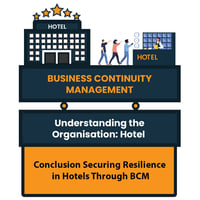
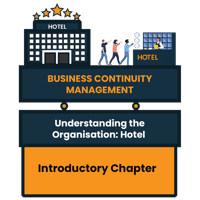
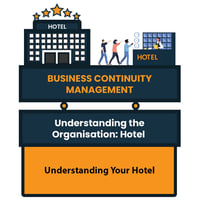
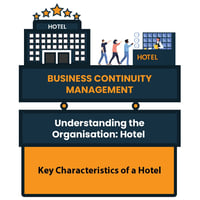
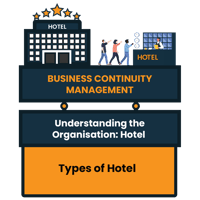
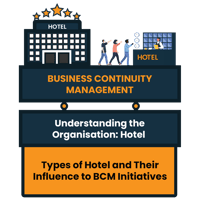
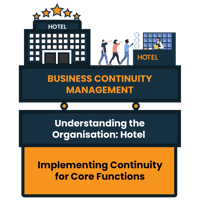
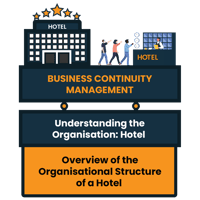
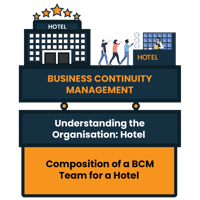
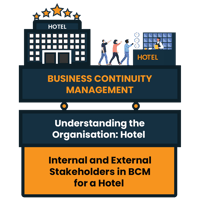

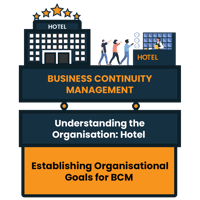
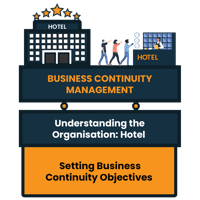
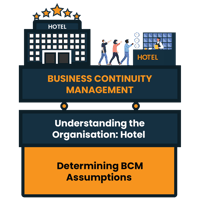
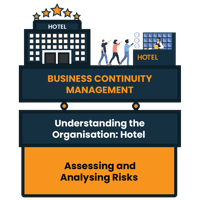

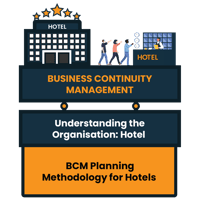
![Email to Sales Team [BCM Institute]](https://no-cache.hubspot.com/cta/default/3893111/3c53daeb-2836-4843-b0e0-645baee2ab9e.png)

